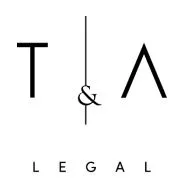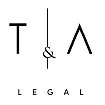- in United States
- within Corporate/Commercial Law, Government, Public Sector and Intellectual Property topic(s)
- with readers working within the Law Firm industries
Introduction
In our last two publications on our tax policy series, we took a deep dive into the review of the provisions and core objectives of the 2025 Tax Reforms Act, specifically the Nigeria Tax Act (NTA) and the Nigeria Tax Administration Act (NTAA).
In this publication, we explore the provisions of the Nigeria Revenue Service (Establishment) Act (NRSA) 2025, and the Joint Revenue Board (Establishment) Act (JRBA), 2025.
Dissecting The Nigeria Revenue Service (Establishment) Act, 2025
Establishment of Nigeria Revenue Service to Replace the Federal Inland Revenue Service
The NRSA, establishes the Nigeria Revenue Service (NRS)1 to replace and perform the fiscal administration function of the Federal Inland Revenue Service (FIRS). All the powers vested in the FIRS are transferred to the NRS, and all existing actions, proceedings, rights, obligations, and contracts of the FIRS are deemed to have been undertaken by the NRS and remain valid.
Also, the NRS retains most of the responsibilities and powers of the FIRS but expands its functions2 significantly to revenue collections previously managed by Nigeria Custom Service, Nigeria Ports Authority, Nigerian Maritime Administration and Safety Agency and Nigerian Upstream Petroleum Regulatory Commission, creating a unified digital tax system.
These MDAs will continue to perform their regulatory and supervisory roles but will no longer be involved in revenue collection. Instead, they will be funded directly by the Federal Government through budgetary allocations approved by the National Assembly, rather than internally generated revenues.
Notably, the Act empowers the NRS to aid State and Local Governments in the administration or collection of taxes, but only in respect of taxes they are legally empowered to collect.3
A notable shift from the FIRS setup is seen in the composition of the NRS's Governing Board4 and the introduction of a Technical Committee of the Board5 tasked with reviewing complex tax matters and advising the Board on technical issues.
The Act also emphasises regional inclusion through the appointment of six Executive Directors, one from each geopolitical zone, on a rotational basis.6 This provision supports federal character principles and ensures a wider representation in the leadership of the Service.
Sustainable Funding Model for the NRS
In terms of funding, the NRSA replaces the former approach (which limited FIRS funding to non-oil revenues) with a more sustainable model. Section 22 of the NRSA provides that the NRS will be financed by 4 percent of all revenue collected by the service (excluding petroleum royalties), as appropriated by the National Assembly. This ensures that the Service is well-resourced to carry out its mandate, including acquiring infrastructure, staff training and technology upgrades.
Accountability and oversight Mechanism
Another important element is the Act's strong focus on accountability and transparency. Under Section 25, the NRS is required to keep proper records and undergo external audits annually. It must also submit quarterly and annual performance and financial reports to the National Assembly.
Additionally, the NRS is mandated to submit an annual report to the Minister of Finance, who must in turn present it to both the Federal Executive Council and the National Assembly7. These provisions introduce much-needed legislative oversight into tax administration.
Furthermore, the Minister of Finance may only give general policy directives to the Service and is prohibited from interfering with specific assessments or enforcement actions,8 a critical safeguard for the operational independence of the NRS.
Taxpayer Confidentiality and Data Protection
The NRSA also provides for the protection of taxpayer information and data confidentiality. Section 32 explicitly criminalises unauthorised disclosures of internal institutional communication or taxpayer information, with fine not exceeding N5,000,000.00 and/or imprisonment term up to 3 years.
International Collaboration and Assistance
The NRSA introduces provisions that enhance international collaboration, information exchange and administrative efficiency in tax matters through Section 4(t) which empowers the NRS to "provide or receive assistance in the collection of revenue claims or any other administrative assistance in tax matters" pursuant to agreements or arrangements between the Federal Government of Nigeria and any foreign government, person, or body.
Dissecting The Joint Revenue Board (Establishment) Act, 2025
The Joint Revenue Board (Establishment) Act, 2025 ("the JRBA"), repeals the framework that previously governed the Joint Tax Board ("JTB") and introduces three distinct yet interrelated institutions: the Joint Revenue Board ("JRB"), the Tax Appeal Tribunal ("TAT"), and the Office of the Tax Ombud ("OTO").
Its primary objective is to enhance tax administration across all levels of government, establish a unified tax dispute resolution platform/mechanism and institutionalise the protection of taxpayer's rights.9 In doing so, the JRBA addresses persistent coordination failures, taxpayer grievances, and legal bottlenecks that have historically undermined Nigeria's fiscal governance.
Establishment of the Joint Revenue Board (JRB) to Replace Joint Tax Board (JTB)
One of the central features of the JRBA is the establishment of the Joint Revenue Board10 to replace the current Joint Tax Board and expand its scope beyond primarily personal income tax matters and aims for greater harmonisation, collaboration and information sharing across different levels of government and revenue-generating agencies compared to the existing JTB. The JRB comprises the Chairman of the Nigeria Revenue Service, chairpersons of all State and FCT Internal Revenue Services, representatives from agencies such as the Ministry of Finance, Nigeria Customs Service, National Identity Management Commission, the Revenue Mobilisation Allocation and Fiscal Commission, Federal Road Safety Corps, and the Nigerian Immigration Service.11 This robust composition is intended to break down silos between revenue authorities and foster a coordinated national tax ecosystem.
The JRB will continue to maintain a centralised platform for taxpayer identification numbers in collaboration with subnational authorities. Other proactive functions12 of the Board include advising government on double taxation matters, conducting impact analysis of fiscal policies, recommending tax reforms, publishing tax-related data such as revenue collections and tax expenditures on waivers, exemptions and incentives of government, supporting interagency research aimed at curbing tax evasion and fraud, providing guidance on tax agent accreditation and resolving jurisdictional dispute on taxpayer residency.
All rights, assets, and liabilities of the defunct Joint Tax Board are automatically transferred to the new JRB.13 Ongoing proceedings, staff employment, contracts, and regulations continue to subsist until lawfully modified or terminated.
Formalisation of Tax Appeal Tribunal to Resolve Federal and State Tax Disputes
A major institutional innovation introduced by the Act is the establishment of the Tax Appeal Tribunal (TAT) under Part V. The Tax Appeal Tribunal is now expressly empowered to adjudicate on tax disputes arising from federal or state tax laws, including those made under the Nigeria Tax Act or Nigeria Tax Administration Act.14 This provision gives the Tribunal broader jurisdictional authority beyond federal matters under the prior FIRS framework. The Tax Appeal Tribunal also inherits all pending cases and existing personnel from its previous statutory basis under the FIRS Act. The Tribunal is manned by five Tax Appeal Commissioners15 and the Tribunal is funded through the Consolidated Revenue Fund as appropriated by the National Assembly.16The Minister of Finance also appoints a coordinating secretary to the tribunal and secretaries for each zone.17 Furthermore, appeals on wrong tax assessments are to be determined within 30 days from the date the assessment was made18 save for where the tribunal is satisfied there is sufficient cause for the delay, and the Act allows for alternative procedures such as affidavit-based hearings and out-of-Tribunal settlements.19 Decisions of the Tribunal carry the force of judgments of the Federal High Court and State High Court once registered, providing legal certainty and enforceability.20
Establishment of the Office of the Tax Ombud to Enhance Taxpayer Protection
The Act also establishes the Office of the Tax Ombud (OTO) under Part VI, a novel inclusion in Nigerian tax legislation. The OTO is headed by the Ombud with cognate experience in taxation, law or public administration appointed by the President on the recommendation of the Minister of Finance.21 Modelled after global best practices, such as South Africa's Tax Ombud, the Office of the Tax Ombud functions as a quasi-independent oversight body mandated to resolve taxpayer complaints through fair, informal, and cost-effective procedures. It is empowered to enter tax offices, examine witnesses, investigate maladministration, unfair treatment, or abuse of power by tax authorities, and make recommendations for redress, including referring criminal conduct to law enforcement agencies.
The Ombud also serves as an impartial arbiter in matters relating to tax, levies, regulatory fees, customs duties, and excise issues, while monitoring systemic trends in tax administration. Additionally, it acts as a watchdog against arbitrary fiscal policies and is required to report such instances to the National Assembly. However, the Ombud does not have the authority to interpret tax laws, issue tax assessments, or determine tax liabilities, focusing instead on procedural justice and upholding taxpayer service standards.22 Investigations are to be completed within 14 days of receiving a complaint, with a possible extension of up to seven days where necessary.23 The Office is funded through the Consolidated Revenue Fund.24
Conclusion
The Nigeria Revenue Service Act and the Joint Revenue Board Act remain foundational to Nigeria's tax administration, reflecting the interplay between federal authority and the need for intergovernmental coordination. The introduction of the new tax framework clearly indicates that effective coordination and organisation are essential for its success. The establishment of the Office of the Tax Ombud, along with the broadened scope of both the NRS and JRB, serves as significant evidence of the commitment to ensure the success of this new regime.
In our next publication which will be the last on this series, we will be sharing a tax guide to provide practical insight on your tax obligations and what you should do in preparation for the implementation of the Acts in 2026.
Footnotes
1 Section 3, Nigeria Revenue Service (Establishment) Act, 2025
2 Section 4, Nigeria Revenue Service (Establishment) Act, 2025- functions include assessing taxable persons, collecting and accounting for taxes, promoting economic growth through tax policy, and investigating tax fraud or evasion.
3 Section 5, Nigeria Revenue Service (Establishment) Act, 2025
4 Sections 6 and 7, Nigeria Revenue Service (Establishment) Act, 2025
5 Section 14, Nigeria Revenue Service (Establishment) Act, 2025
6 Section 17, Nigeria Revenue Service (Establishment) Act, 2025
7 Section 26, Nigeria Revenue Service (Establishment) Act, 2025
8 Section 30, Nigeria Revenue Service (Establishment) Act, 2025
9 Section 1, Joint Revenue Board (Establishment) Act, 2025
10 Section 3, Joint Revenue Board (Establishment) Act, 2025
11 Section 4, Joint Revenue Board (Establishment) Act, 2025
12 Section 5, Joint Revenue Board (Establishment) Act, 2025
13 Section 59, Joint Revenue Board (Establishment) Act, 2025
14 Sections 23 and 29, Joint Revenue Board (Establishment) Act, 2025
15 Section 24, Joint Revenue Board (Establishment) Act, 2025
16 Section 30, Joint Revenue Board (Establishment) Act, 2025
17 Section 32, Joint Revenue Board (Establishment) Act, 2025
18 Paragraph 2 of the Second Schedule to the Joint Revenue Board (Establishment) Act, 2025
19 Paragraph 6 of the Second Schedule to the Act
20 Paragraph 9 of the Second Schedule to the Act
21 Section 37, Joint Revenue Board (Establishment) Act, 2025
22 Section 43, Joint Revenue Board (Establishment) Act, 2025
23 Paragraph 2 of the third Schedule to the Act
24 Section 44, Joint Revenue Board (Establishment) Act, 2025
The content of this article is intended to provide a general guide to the subject matter. Specialist advice should be sought about your specific circumstances.


